
Electronic Journal of Structural Engineering
Scope & Guideline
Transforming Ideas into Engineering Excellence
Introduction
Aims and Scopes
- Structural Analysis and Design:
The journal emphasizes rigorous analysis and design methods for various structural systems, including traditional and innovative materials, with a focus on enhancing safety, performance, and sustainability. - Material Properties and Innovations:
Research on the properties of traditional and novel materials, such as concrete, steel, and composites, is a staple, highlighting advancements like high-performance concrete, graphene oxide applications, and eco-friendly materials. - Seismic and Dynamic Analysis:
A significant focus is placed on understanding the behavior of structures under seismic loads and dynamic conditions, employing advanced numerical simulations and experimental methods to improve resilience. - Sustainability and Eco-friendly Solutions:
The journal promotes studies that explore sustainable construction practices, including the use of recycled materials and innovative building techniques, to reduce environmental impact. - Construction Methods and Management:
Research on construction methodologies, project management, and the use of modern technologies like BIM (Building Information Modeling) is featured, addressing efficiency and safety in construction processes.
Trending and Emerging
- Advanced Computational Methods:
There is a growing trend towards the use of sophisticated computational techniques, such as machine learning and nonlinear finite element analysis, to predict structural performance and optimize designs. - Sustainable Construction Practices:
Research focusing on sustainability, including the application of alternative materials like hemp and the development of eco-friendly composites, is increasingly prevalent, reflecting a broader industry movement towards greener practices. - Modular and Prefabricated Structures:
The exploration of modular construction techniques and prefabricated systems is on the rise, driven by the need for efficiency and rapid construction methods in response to urbanization and housing demands. - Resilience Engineering:
Recent publications indicate a heightened emphasis on resilience in structural design, particularly in relation to natural disasters, with studies assessing the performance of structures under extreme conditions. - Innovative Reinforcement Techniques:
The use of advanced reinforcement methods, such as fiber-reinforced polymers and other composite materials, to enhance structural performance and longevity has emerged as a key area of interest.
Declining or Waning
- Traditional Materials Research:
There has been a noticeable decrease in studies focused solely on traditional materials like plain concrete or standard steel, as the field shifts toward innovative composites and sustainable materials. - Basic Structural Behavior Studies:
Research that primarily investigates fundamental structural behaviors without integration of advanced modeling techniques or contemporary applications has become less frequent, indicating a move towards more applied and complex studies. - Historical Structural Analysis:
Papers focusing on the historical analysis of existing structures or traditional construction methods have waned, likely overshadowed by the demand for innovative solutions and modern engineering challenges.
Similar Journals
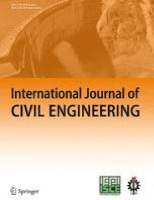
International Journal of Civil Engineering
Advancing Sustainable Solutions in Civil EngineeringThe International Journal of Civil Engineering, published by Springer International Publishing AG, is a premier platform dedicated to advancing the field of civil engineering. With a notable impact factor and a strong reputation reflected in its Q2 quartile rankings in both Civil and Structural Engineering as well as Geotechnical Engineering and Engineering Geology, this journal facilitates the dissemination of high-quality research from 2009 through 2024. Researchers and professionals can access cutting-edge studies and innovative practices that address contemporary challenges in civil engineering, such as sustainable infrastructure development, environmental impacts, and advanced material technologies. Situated in Switzerland, the International Journal of Civil Engineering emphasizes the critical interplay between theory and application, making it an essential resource for students, academics, and industry leaders seeking to stay at the forefront of their disciplines.
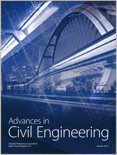
Advances in Civil Engineering
Bridging Knowledge and Practical ApplicationAdvances in Civil Engineering is a leading peer-reviewed journal published by HINDAWI LTD, dedicated to advancing knowledge and innovation in the field of civil and structural engineering. Holding an esteemed Q2 ranking in the 2023 category for Civil and Structural Engineering, this journal serves as a vital platform for disseminating cutting-edge research and practical applications that address contemporary challenges in infrastructure development, sustainable design, and material science. Launched in 2008 and operating as an Open Access journal since 2009, it promotes the free exchange of ideas by ensuring that all articles are accessible to researchers, professionals, and students globally. The journal is also indexed in Scopus, ranking at #142 out of 379 in its category, situating it within the 62nd percentile of its peers. With a focus on interdisciplinary collaboration and innovative solutions, Advances in Civil Engineering contributes significantly to the ongoing evolution of engineering practices and education, making it an essential resource for anyone involved in or studying the ever-evolving field of civil engineering.

Opir Materialiv i Teoria Sporud-Strength of Materials and Theory of Structures
Advancing the Frontiers of Material Science and Structural EngineeringOpir Materialiv i Teoria Sporud - Strength of Materials and Theory of Structures is a prestigious open-access journal published by BUDIVELNIK, focusing on significant developments in the fields of material science and structural engineering. Established in 2009, this journal facilitates the dissemination of original research articles, theoretical analyses, and case studies related to the strength of materials and structural stability. The journal aims to bridge the knowledge gap between academia and industry, fostering innovation and practical applications in construction and material technology. With its commitment to open access, Opir Materialiv i Teoria Sporud ensures that vital research is accessible to a global audience of researchers, professionals, and students, thereby contributing to the advancement of engineering practices and safety standards. The journal is based in Kyiv, Ukraine, and encourages rigorous academic discourse within its scope, making it an essential resource for those engaged in structural engineering and material sciences.

Teknik Dergi
Exploring Innovations in Construction and EngineeringTeknik Dergi is a key academic journal published by the Turkish Chamber of Civil Engineers, focusing on the critical fields of Building and Construction as well as Civil and Structural Engineering. Established in Turkey, this journal serves as a vital platform for researchers, practitioners, and students to disseminate innovative findings and advancements within these disciplines. Although its coverage in databases like Scopus has been discontinued since 2022, Teknik Dergi remains a respected resource for its historical contributions, with a record of publication spanning from 1990 to 1998 and then from 2002 to 2022. The journal currently holds a Q4 categorization in both its primary fields, ranking within the 30th and 25th percentiles respectively. Authors and readers can access articles exploring practical applications and theoretical foundations, making it a valuable asset for those engaged in the rapidly evolving landscape of civil engineering. Open Access options are also available, allowing for broader dissemination and engagement with its published work.
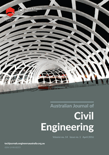
Australian Journal of Civil Engineering
Shaping the Landscape of Civil Engineering KnowledgeThe Australian Journal of Civil Engineering, published by Taylor & Francis Ltd, stands as a pivotal platform within the field of civil and structural engineering. With an ISSN of 1448-8353 and an E-ISSN of 2204-2245, this journal consistently delivers high-quality research and innovative practices from both established and emerging scholars in the discipline. Recognized in the Q2 category for Civil and Structural Engineering in 2023, it holds a respectable position, ranking 146 out of 379 within its field according to Scopus, which places it in the 61st percentile. Converging valuable insights from 2011 through 2024, the journal encompasses a broad scope of topics, including sustainable infrastructure, innovative materials, and advanced construction techniques, thereby addressing contemporary challenges faced by engineering professionals. Though it is a traditional publication without open access options, the quality of the research featured ensures that it remains an essential resource for academics, practitioners, and students striving to enhance their knowledge and contribute to the dynamic field of civil engineering.

Civil Engineering Journal-Stavebni Obzor
Fostering Collaboration for a Sustainable FutureWelcome to the Civil Engineering Journal-Stavebni Obzor, an esteemed academic publication dedicated to advancing the field of civil engineering. Published by the Czech Technical University in Prague, Faculty of Civil Engineering, this journal has provided a platform for innovative research and critical discourse since its inception. With an ISSN of 1210-4027 and an E-ISSN of 1805-2576, this Open Access journal has been facilitating wide dissemination of knowledge in civil engineering since 2014, ensuring that valuable research reaches a global audience without barriers. The journal is committed to fostering collaboration among researchers, professionals, and students, encouraging the exchange of ideas that drive the discipline forward. Its diverse scope encompasses various aspects of civil engineering, making it an essential resource for anyone looking to stay at the forefront of this dynamic field. Located in Prague, a hub of engineering excellence, this journal not only reflects the latest trends and innovations but also contributes to shaping the future of civil engineering.

Advanced Steel Construction
Exploring Cutting-Edge Techniques in Steel ConstructionAdvanced Steel Construction is a prominent journal published by the Hong Kong Institute of Steel Construction, dedicated to the field of structural engineering and material sciences with a specific focus on steel construction techniques and advancements. Since its inception in 2005, the journal has established itself as a valuable resource for researchers, professionals, and students alike, offering insights into the latest developments and innovative practices within the realms of building construction, civil engineering, and materials mechanics. With its recognition as a Q2 journal across multiple engineering categories, including Building and Construction, Civil and Structural Engineering, Mechanical Engineering, and Mechanics of Materials, it ranks competitively in Scopus rankings, highlighting its significance in academic discourse. The journal is based in China, at the Hong Kong Polytechnic University, and provides an essential platform for sharing groundbreaking research and fostering collaboration within the engineering community.
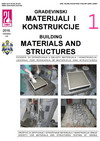
Gradevnski Materijiali I Konstrukcije-Building Materials and Structures
Innovating materials, building a resilient tomorrow.Gradevnski Materijiali I Konstrukcije - Building Materials and Structures is a premier open-access journal dedicated to advancing the field of construction materials and structural engineering. Published by SOC MATERIALS & STRUCTURES TESTING SERBIA, this journal provides a platform for researchers, professionals, and students to share their innovative findings and developments in building materials. With a commitment to open-access since 2012, it fosters unrestricted availability of research for a wider audience, encouraging collaboration and knowledge dissemination. The journal features a diverse range of topics, including material testing, structural integrity, and sustainable construction practices, making it a vital resource for those engaged in the design and analysis of structural components. By fostering the advancement of research and practice in this crucial sector, Gradevnski Materijiali I Konstrukcije plays an essential role in shaping the future of construction and material science.
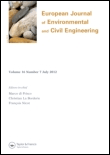
European Journal of Environmental and Civil Engineering
Pioneering Research at the Intersection of Environment and InfrastructureThe European Journal of Environmental and Civil Engineering, published by Taylor & Francis Ltd, is a prestigious peer-reviewed journal that serves as a vital platform for advancing knowledge in the fields of Civil and Structural Engineering as well as Environmental Engineering. With an impressive impact factor and categorized in the Q2 quartile for both engineering fields, this journal occupies a significant position in the scholarly community. Its focused scope encompasses innovative research, case studies, and practical applications that address contemporary environmental and infrastructural challenges. Researchers, professionals, and students alike benefit from the journal's commitment to high-quality discourse, as evidenced by its Scopus rankings, which place it in the top 30% in Civil and Structural Engineering and the top 40% in Environmental Engineering. Through the publication of cutting-edge studies and a commitment to fostering interdisciplinary dialogue, the European Journal of Environmental and Civil Engineering remains an essential resource for those dedicated to improving our built environment and safeguarding our natural resources.
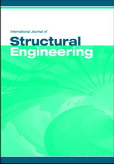
International Journal of Structural Engineering
Building Knowledge for Tomorrow's EngineersInternational Journal of Structural Engineering, published by InderScience Enterprises Ltd, has established itself as a vital resource in the field of civil and structural engineering. With an ISSN of 1758-7328 and an E-ISSN of 1758-7336, this journal is dedicated to disseminating high-quality research that addresses contemporary challenges and innovations in structural engineering. The journal operates under a rigorous peer-review process, ensuring that only the most impactful and relevant studies are shared with the global community. Since its inception in 2009, the journal has been recognized for its contributions, earning a ranking in Q3 for civil and structural engineering under the 2023 Category Quartiles and occupying the 40th percentile in Scopus rankings. While currently not an open-access journal, it provides access to a wide array of original papers, reviews, and case studies that are crucial for fostering academic discourse and supporting the ongoing education of professionals and students alike. As it continues to expand its reach until 2024, the International Journal of Structural Engineering remains a cornerstone for those seeking to enhance their knowledge and practice in the dynamic realm of structural engineering.